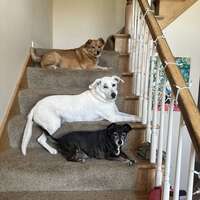About Me (In My Own Words)
I’ve been following this website since 2009 after I “fell out of the sky” when my paraglider collapsed and I fell 50’ to the rocks. I broke a lot of bones and crushed my chest, leading to severe aortic regurgitation. The heart damage wasn’t officially diagnosed until 8 months later during an annual physical. In the meantime I’d been working towards my recovery goals (after 7 weeks in a wheelchair), and had been doing big hikes with major elevation gain, and had worked up to cross-country skiing 25km in preparation for an annual event. I was in disbelief when I was told aortic valve replacement was inevitable, since I was asymptomatic. I got echocardiograms every 6 months, then annually, then biennially, but my echocardiograms didn’t change after the initial left ventricle enlargement ( just below the threshold for surgery now). About 10 years later I told my cardiologist I thought my exercise tolerance was decreasing more rapidly than could be explained by aging. But, because of no change in my echos, and a very high level of physical activity (e.g., day hike up Mt. Whitney— 22 miles, 6000+’ elevation gain to 14,531’), my cardiologist was convinced it was solely due to aging (63 at the time). Three years later my arrhythmias escalated (including SVTs) and my retiring cardiologist handed me off to a new cardiologist (after telling me I’d be a candidate for TAVR — NOT!). I was quickly referred to a cardiac surgeon who was appalled that my severe regurgitation went untreated for 13.5 years. I’d had a stress echo in 2020 that showed no problems, and far more fit than expected. The presurgery work up showed my coronary arteries were “as smooth as a baby’s bottom”. The echo showed no problems. A Zio patch (2 weeks wear time) documented the arrhythmias. The baseline echo 5 weeks after surgery showed severe hypokinesis of my heart muscle and grade 1 diastolic dysfunction (DD). I had NO DD in the presurgery echo or any previous echos and my ejection fraction was never below 55%. After surgery I returned to high levels of physical activity quite soon, but now had problems with low blood pressure, especially after prolonged vigorous exercise — dropping as low as 67/47. After an initial down time to recover from surgery, I had expected to be better than before, now that my regurgitation had been “fixed”. Although I’m more physically able in my second year post-surgery than I was the first year, I am not as physically able as I was just before my surgery. Now my stress echo shoes grade I/II Diastolic dysfunction at rest and under stress, and my blood pressure drops can be quite debilitating. It’s rare that my systolic BP is in the low 100s at the beginning of the day. It’s usually in the 90s or 80s, and, after extended physical activity it regularly drops into the 70s and 60s either after or during hiking, with heavy breathing when hiking up steep hills and sometimes on the edge of passing out until I stop to catch my breath. Because I can do 12 minutes on the treadmill, when the expected is 6 minutes, cardiologists tell me I’m super fit, but I’ll never be as good as I was before surgery given the stress of the surgery. I just need to readjust my expectations about my physical activities. Sorry for the long preamble, but my case is not “typical”. I’m 69 yo, and am concerned with the apparent worsening of my diastolic dysfunction (as a result of “chronic changes to my heart, associated with a stiffening of my heart muscle that slows the fill rate”). My ejection fraction increases to 65-70% under stress, but if it doesn’t have as much time to fill as my heart rate increases (almost never higher than 126bpm, resting HR 58, down to 39-40 at night) it can’t adequately supply the demands of my body. Here’s my question to the community— HAVE ANY OF YOU EXPERIENCED DIASTOLIC DYSFUNCTION *AFTER* SURGERY, AND POST EXERCISE HYPOTENSION? No one can tell me why I have the BP problems now, and I’m quite concerned if, in fact, my diastolic dysfunction is getting worse. My surgery was done at a hospital with a good reputation but afterwards I transferred my subsequent care to a smaller hospital closer to home. I’m considering going for a second opinion at a more recognized cardiovascular hospital, but don’t know what sort of cardiac specialist might be able to shed light on my “unusual and complicated case”. I wanted to reach out to this community in case someone here has had similar experiences and can offer advice, or suggestions of who I should seek out for a 2nd opinion. THANKS!
More Info About Me & My Heart
More About Me
-

I am from:
Winthrop , WA
-

My surgery date is:
April 3, 2023
-

I was diagnosed with:
Aortic Regurgitation
-

My surgery was:
Aortic Valve Replacement
-

My surgeon is:
Dr. Roland Hernandez
-

My hospital is:
Swedish Hospital Seattle Wa
 I am from: Winthrop , WA
I am from: Winthrop , WA My surgery date is: April 3, 2023
My surgery date is: April 3, 2023






